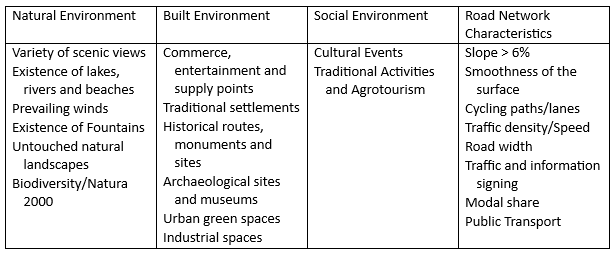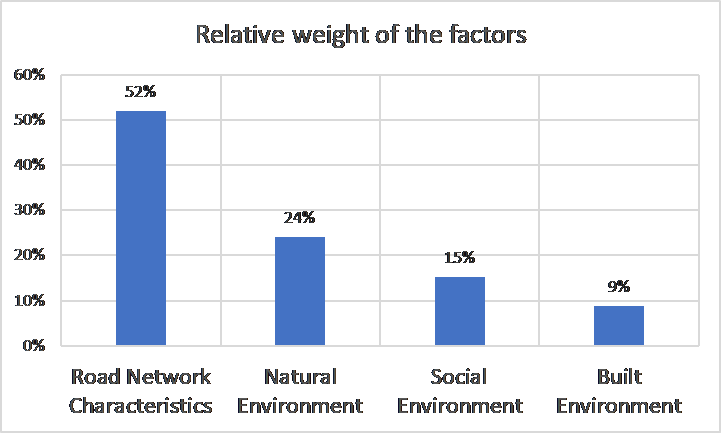EcoVeloTour - Qualitative social research from Greece supports EcoVeloTour findings
26-03-2020
Recently published results from qualitative social research support the findings summarised in the EcoVeloTour Guidelines for Sustainable Bicycle Tourism.
Researchers of the Technical University of Athens have used a combination of qualitative social research (in-depth interviews and focus groups) and participative analytical hierarchical process to identify the motivators of cycling tourists in Greece (Bakogiannis et al. 2020). In order to explore the attractiveness of tourism regions for cyclists, four factors were identified: (a) natural environment, (b) built environment, (c) social environment and (d) road network characteristics. These factors deal holistically with cyclists’ needs, preferences and impediments. Each of the four factors was measured with a set of different parameters (Table 1).
Table 1: Parameters of the attractiveness factors

A participative analytical hierarchy process was used to quantify the importance of each parameter and factor (Figure 1). The road network characteristic is, with a weight of 52%, the most important factor for the attractiveness of a region or route for bicycle tourists. The second most important factor is natural environment, with a weight of 24%. About three quarters of the attractiveness of a region or route are determined by these two factors. About one quarter of the attractiveness is determined by the other factors social and built environment.

Figure 1: Relative weight of the four attractiveness
These findings perfectly support the suppositions and conclusions of the EcoVeloTour Guidelines for Sustainable Bicycle Tourism (Gauster et al. 2019). Without an appropriate, high quality cycling infrastructure it is not possible to fully utilise the potential of natural beauty, regional cultural heritage and ecosystem services. But on the other hand, natural beauty and regional cultural heritage are also essential for the development attractive touristic bicycle route. All in all, strong arguments for a close integration of eco-tourism, ecosystem services and bicycle tourism.
References
Bakogiannis, Efthimios, Thanos Vlastos, Konstantinos Athanasopoulos, Avgi Vassi, Georgia Christodoulopoulou, Christos Karolemeas, Stefanos Tsigdinos, et al. 2020. “Exploring Motivators and Deterrents of Cycling Tourism Using Qualitative Social Research Methods and Participative Analytical Hierarchy Process (AHP).” Sustainability. https://doi.org/10.3390/su12062418.
Gauster, Joachim, Lukas Hartwig, Michael Meschik, and Paul Pfaffenbichler. 2019. “EcoVeloTour WP3 Ecotourism Planning - Guidelines for Sustainable Bicycle Tourism.” Vienna. http://dtp.interreg-danube.eu/uploads/media/approved_project_output/0001/36/cfb8514ba973699218d4caf1fb4ec0371766d5d9.pdf.
The original research document is available here: https://www.mdpi.com/2071-1050/12/6/2418
